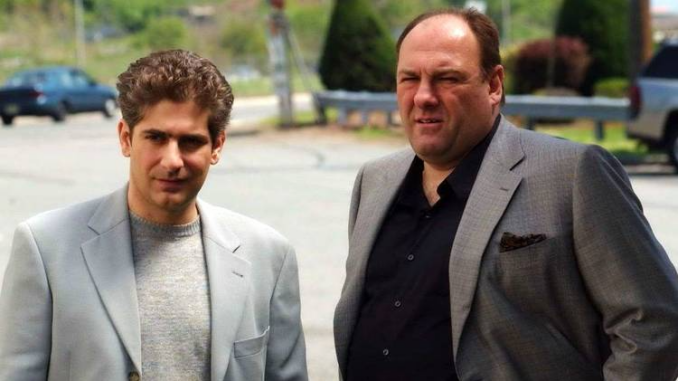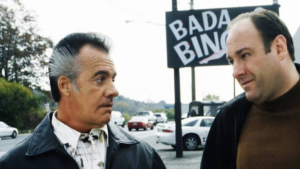
The Sopranos: Why Did Tony Kill Christopher?
The Sopranos is renowned for its intricate plotlines, morally complex characters, and shocking twists that leave audiences pondering deeper questions long after the credits roll. One of the most harrowing moments in the series occurs when Tony Soprano, the show’s central figure, decides to end the life of his nephew and protégé, Christopher Moltisanti. This event, which takes place in the final season, remains one of the most talked-about moments in television history. But why did Tony kill Christopher?
In this article, we will explore the key factors that contributed to this momentous decision. We will analyze the intricate dynamics between Tony and Christopher, their evolving relationship, and how the buildup of tensions throughout the series made this tragic conclusion inevitable.

The Soprano Family: A Complex Web of Loyalty and Betrayal
Before diving into the specifics of why Tony killed Christopher, it’s important to understand the broader context of their relationship. The Sopranos is set in the world of organized crime, where loyalty and betrayal are constant themes. The relationship between Tony and Christopher is complicated by a number of elements, including family ties, personal ambitions, and the dangerous lifestyle they both lead.
Christopher, Tony’s nephew, is introduced as an ambitious, often impulsive young man, eager to prove himself in the criminal underworld. Tony, on the other hand, is both a mentor and a father figure to Christopher, though his role as a leader often requires him to make difficult decisions—sometimes at the cost of personal relationships.
Throughout the series, Christopher shows signs of a deep-seated need for approval from Tony. Despite his initial ambition to rise in the ranks of the mob, he consistently finds himself in situations where his actions or emotional outbursts threaten his standing. Over time, Tony grows frustrated with Christopher’s immaturity, unreliability, and constant desire for validation.
The Cracks in Their Relationship: A Growing Rift
Christopher’s Drug Addiction
One of the key elements that contributed to the breakdown in Tony and Christopher’s relationship was Christopher’s ongoing battle with substance abuse. From the very beginning, Tony’s frustration with Christopher’s addiction is palpable. Although he initially tries to help him, the repeated relapses only strain their bond.
Christopher’s addiction to heroin is symbolic of the wider destructive tendencies in his life. Despite Tony’s best efforts to support him, Christopher’s refusal to get clean, coupled with his violent outbursts and erratic behavior, makes him increasingly difficult to manage. In many ways, Tony sees Christopher as a liability—a once-promising member of the family who has descended into addiction and reckless behavior.
Tony’s frustration grows as Christopher becomes more unpredictable. His addiction not only makes Christopher a potential threat to Tony’s business but also a source of personal anguish. Tony tries to be understanding, but his patience wears thin, especially as the stakes rise in their dangerous world.
Christopher’s Struggle with His Own Identity
Throughout the series, Christopher grapples with his own identity and his place in the mob. While he wants to be a part of the family business, he is constantly torn between his aspirations and his inability to handle the weight of the world he inhabits. His emotional instability and desire to prove himself often lead to poor decisions, which in turn erode Tony’s confidence in him.
In several instances, Tony tries to guide Christopher, offering him career advice or stepping in when things get tough. However, Christopher often acts out of a sense of entitlement, believing that his position as Tony’s nephew should automatically guarantee him success. This sense of entitlement, coupled with his self-destructive tendencies, alienates him from Tony even further.
Tony is ultimately faced with a painful truth: Christopher’s loyalty to the family and his potential as a future leader are overshadowed by his personal flaws. As much as Tony wants to believe in Christopher’s potential, the young man’s inability to change or adapt becomes too much to overlook.
The Moment of No Return: Christopher’s Fatal Accident
The Crash Scene: A Turning Point in Their Relationship
The pivotal moment in Tony and Christopher’s relationship occurs in Season 6, Episode 6, “Kennedy and Heidi,” during a car crash. Christopher is high on heroin, and his reckless driving results in a violent accident. He crashes the car into a guardrail, severely injuring both himself and his fiancée, Kerry.
Tony arrives at the scene to find Christopher barely conscious, struggling to breathe. At this moment, Tony is faced with a critical choice: whether to save his nephew or allow the inevitable consequences of Christopher’s self-destructive behavior to play out. It is here that Tony makes the decision that seals Christopher’s fate.
As Christopher gasps for air, struggling to breathe, Tony contemplates the future. His mind races through their complicated history, and it’s clear that this is the moment when Tony realizes that Christopher can no longer be saved. His addiction, his violent tendencies, and his constant failures have become too much to bear.
In a chilling act, Tony suffocates Christopher with his own hand, ending his life in the very moment he was supposed to protect him. It is a decisive, brutal action that marks a turning point not only in their relationship but also in Tony’s character arc.
Why Tony Killed Christopher: A Psychological Breakdown
Loyalty vs. Practicality
At its core, Tony’s decision to kill Christopher is rooted in a harsh, cold calculation of loyalty vs. practicality. Tony’s role as the head of the family requires him to make difficult decisions, and sometimes those decisions involve eliminating threats, even if the threat is someone close to him. In this case, Tony is faced with the truth that Christopher has become a liability, both personally and professionally.
Throughout the series, Tony is shown to value loyalty above all else. However, his definition of loyalty is not based on blind allegiance. Instead, it is intertwined with the practical realities of running a criminal enterprise. As a leader, Tony must be able to rely on his crew, and Christopher’s consistent failures and lack of maturity make him an unreliable asset.
Tony also recognizes that Christopher’s life choices have made him a danger to himself and to the family. By killing Christopher, Tony takes away a potential source of future problems. In many ways, it is a final, tragic act of “protection”—both for Christopher, who cannot seem to escape his self-destructive path, and for the family, which could not afford to have such a volatile individual within its ranks.
The Symbolism of Tony’s Murder of Christopher
Tony’s decision to kill Christopher also holds symbolic weight in the context of the series. Throughout the show, Christopher has been portrayed as a character caught between two worlds: the traditional Mafia life and the desire for a different, more personal future. His failed attempts to break free from the mob world—whether through his dreams of becoming a screenwriter or his fleeting moments of sobriety—serve as a tragic commentary on the impossibility of escaping the grip of his environment.
By killing Christopher, Tony symbolically ends the possibility of redemption not only for his nephew but also for himself. Tony’s own struggle with his identity and his role in the Mafia are deeply intertwined with his relationship with Christopher. As much as he might want to save his nephew, Tony knows that in the world they inhabit, there is no room for weakness, and no one, not even family, can afford to be a liability.
In many ways, Christopher’s death represents the end of an era. It marks the end of Tony’s attempts to “save” those around him, as well as the end of any remaining illusions about the possibility of redemption in the world of The Sopranos. The finality of Christopher’s death underscores the tragic inevitability of the show’s overarching themes: loyalty, betrayal, and the crushing weight of family ties.
Conclusion: The Tragic Complexity of Tony and Christopher’s Relationship
Tony’s decision to kill Christopher is one of the most heartbreaking moments in The Sopranos, and it encapsulates the show’s ability to explore the complexities of human relationships in an unforgiving world. Their relationship was always fraught with tension, filled with love, betrayal, and a desperate desire for approval. Ultimately, Tony’s choice to kill Christopher was an act of necessity—a painful but practical decision born out of years of frustration, disappointment, and the harsh realities of their lives in the Mafia.
Through this act, The Sopranos offers a profound meditation on the nature of loyalty, the consequences of addiction, and the inevitable price of violence in a world where family ties are both a source of strength and a burden. Christopher’s death, while tragic, is also a fitting conclusion to his arc, and it serves as a brutal reminder of the lengths to which Tony, and indeed the entire family, must go to survive in their dangerous world.
FAQs: Understanding Tony’s Decision
Q1: Was Christopher truly a threat to Tony and the family?
Yes. Over the course of the series, Christopher became increasingly unreliable due to his addiction, violent behavior, and lack of maturity. His